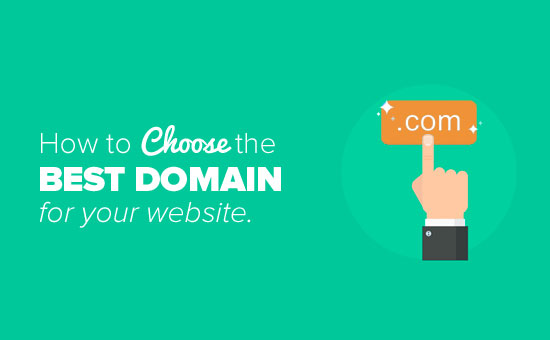An essential subject for anyone or any company wishing to have an online presence, the domain name is the starting point for any adventure on the web.
What is a domain name?
A domain name is composed of a name, which you choose, and of a suffix which obligatorily begins with a point. For example, facebook.com is made up of the name "facebook" and the suffix ".com". This suffix is also called an extension. You must already know several of them: .com, .fr, .net, .org, etc.
Your name is your address on the web. People will find and remember your site through it, and may also send you emails. It must be both representative of your activity and easy to remember.
A heavy choice
The choice of the domain name should not be taken lightly. You will communicate with this domain name on all your marketing materials.
Changing your domain name is therefore not without consequence and can result in a very clear loss of visibility on the Internet, not to mention that your customers may get lost.
Also, the choice of the domain name has immediate consequences on your future SEO. For example, if you create the site of your pizzeria, it would be appropriate that the word "pizzeria" or "pizza" appears in the domain name, which will give you a definite advantage in Google's algorithm.
In short, take at least a few hours, if not a few days, to mature your thinking and then make a choice that may follow you for a long time.
Which extension to choose?
There were only a few domain extensions before, but today there are hundreds. They can be classified into two categories:
• GTLDs : these are global and generic extensions ( .com, .net, .top , etc.) which are accessible worldwide. These extensions have the meaning we want to give them, but there is nothing mandatory. For example, the extension .com designates in principle a commercial site, and .org a non-profit site, but absolutely nothing prevents us from hosting a commercial site on a domain name in .org! However, this can be a clumsy and misunderstood choice for your customers.
• CcTLDs: these are geographic extensions, attached to a country, a territory or a continent. For example, the .fr is linked to France, the .eu to the European Union. Some of these extensions are restricted. For example, to register a .eu, you must reside in the European Union.
The choice of extension is, therefore, a purely marketing choice: what signal do you want to send to your customers? In which market do you plan to develop?
Sometimes the choice of extension is also guided by availability. The same name can already be taken on one extension, and free on another. In which case you will not have a choice if you want this name. If you are in this situation, don't forget to do a quick brand audit: who uses this name, for what activity? If there is a risk of confusion, you may be less visible, or even have legal problems if your competitor believes that you are harming him.
By default: the essential .com
The .com remains the queen extension insofar as it is the best known and the one that is spontaneously typed in case of doubt. There is even a ".com" key on most virtual keyboards of smartphones and tablets. If the .com is available it is in your best interest to take it. However, this is less and less often the case. It becomes very complicated if not impossible to find an interesting name in .com.
The .com often a good alternative
Is your company Bangladeshi and your customers Bangladeshi? Will your site be in Bangladesh? So it makes sense to think of the .fr which has the merit of keeping a wide availability of names. You will find it much easier to find a name that sounds great.
.com is very widespread in Bangladesh and BD server hosting users have been used to it for many years. You take no risk.
The other extensions
I see two cases for which the other extensions may prove to be relevant:
• You failed to find an interesting name in .com and .fr; so you need to explore other less busy extensions.
• Your activity corresponds very precisely to an extension. For example, a football club might want to register its name on the .club extension. It makes sense. Note, however, that most of the extensions were created for the English language. It is hard to imagine a Bangladeshi chartered accountant choosing a domain name on the .accountant extension.





